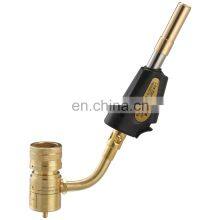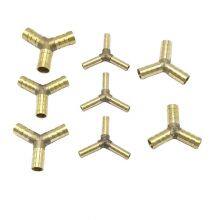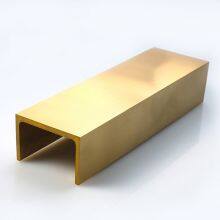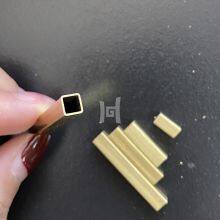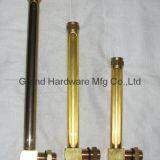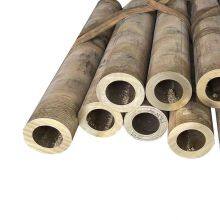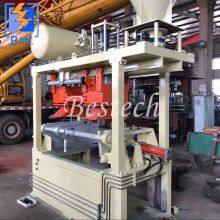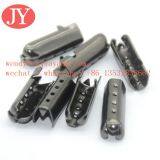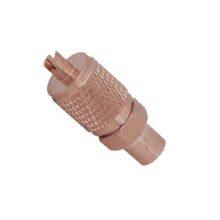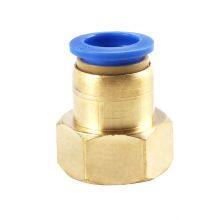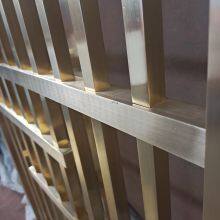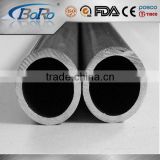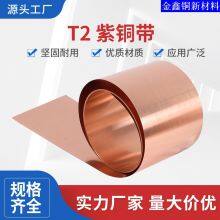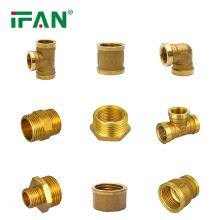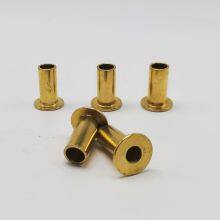You've arrived at our detailed guide on how to choose the best brass tube for your next project. Regardless of which category you fall under, whether a DIYer, a contractor, or a hobbyist, having insight into brass round tubing will improve the outcome of your work. This page outlines everything, from accurate alloy compositions to meticulous diameters, to help you make an informed decision that best suits your needs.
The construction of a brass tube consists of copper and zinc, which makes it highly durable and corrosion-resistant. Tubes constructed in brass have excellent thermal conductivity, which has a positive impact in many industries. This makes it versatile and an appealing component to use with. As every industry demands something different, tubes made of brass are used where precision and uniformity are required, such as in architecture and the music industry.
Brass round tubes are distinguished by their uniform cross-section, as well as the complete absence of welds. In addition, they can be customized to have different lengths and wall thicknesses. These tubes are available in a wide range of sizes, making them suitable for both large-scale projects and intricate designs. The strength and corrosion resistance of high-quality brass guarantee uncompromising reliability for construction, metalwork, architecture, and design, providing not only functional but also aesthetically pleasing solutions.
Although both round and square tubes are useful, there are clear reasons to choose one over the other depending on your project needs. Round brass tubes are often preferred for plumbing and HVAC systems because of their smooth bends and seamless fluid dynamics. In contrast, square tubes are generally used in construction and industrial designs where rigidity and structural sturdiness are required.
Choosing the correct brass tubing requires keen attention to detail. This includes the alloy type, diameter, wall thickness, and type of application, among other factors. It is important to understand that not all projects have the exact requirements. For example, a decorative installation may have specification requirements that are not as structurally sound as an industrial part, which is heavily dependent on strength and precise measurements.
Performance and suitability for specific tasks can greatly depend on the diameter of a brass round tube. Whether dealing with plumbing components or decorative fixtures of an apartment, precise sizing is needed. The relationship between the diameter, wall thickness, and length of the tube must be well understood to ensure that the intended purpose is achieved without compromising structural integrity.
Evaluating the project specifications is necessary when choosing between brass round tubes and other metal tubes like stainless steel and nickel. Brass is aesthetically appealing and easily machined, while stainless steel is stronger and more resistant to corrosion. Your intended use, surrounding environment, and aesthetic preferences will help you make the right decision.
Submitting a brass tubing order requires paying attention to a few factors to get the right product. Start by setting your specifications, such as dimensions, wall thickness, and case material. From there, pick a credible supplier with a stock of precision metals that can meet your needs. Lastly, check that the item is in stock, verify any custom options that could improve your project's outcome, and then make the order.
Brass tubes are shipped using various methods and options, each with different costs and delivery windows. Good brass tube suppliers will offer multiple shipping options, which are convenient for varying levels of urgency and budget constraints. Assessing these options and ensuring the correct one is selected that fits within the project's timeline is imperative to guaranteeing on-time delivery of the brass tubing.
While maintaining projects, ensuring that the brass tube is delivered on time and with precision is non-negotiable. Partner with vendors that provide precise material specifications and track samples for your shipments. This level of detail not only guarantees quality but also assures you that your order will arrive on schedule.
The remarkable brass tubing is highly regarded in the industry due to it immense durability and its multitasking capabilities. While it is used in numerous pieces of condensers and heat exchangers, it is equally important in precision machinery components. As with everything, there are certain types of alloys, such as the well-known gold 260, that are best liked for their alloy in temper because of their unbeatable toughness and consistency in demanding situations. It is only natural that so many operations depend upon it.
Artists and designers often appreciate brass tubes because of their effortless nature and the immense aesthetic appeal they possess. They are often used in the form of bespoke furniture pieces, decorative items, and even custom fixtures. In regards to home enhancement projects, the unequaled strength and durability, combined with the different lengths and diameters, make projects much easier and add elegance to the home.
Being an excellent heat conductor, brass seeing tubes possess immense strength that makes them corrosion-resistant, unlike gold tubes, because they can withstand high temperatures. It doesn't come as a surprise that these round brass tubes play a vital role in pneumatic and water plumbing systems. Because of these features, chassis tubing becomes crucial in providing efficient and enduring plumbing and HVAC services. The undeniable ability of these tubes to provide sustainability makes them crucial for all restraining connections, such as preventing water or air loss.
Brass tubes are available in various alloys, each with specific properties suitable for multiple fields. For example, alloys like 260, 330, and 272 have some differences in copper, zinc, and other elements which impact the brass’s strength, ductility, and thermal conductivity. Selecting the right alloy is crucial for ensuring the best performance and durability of the tubing for your specific project.
The performance oof a specific brass alloy is greatly impacted by the composition and is particularly noticeable in certain applications. For example, marine environment applications greatly benefit from corrosion-resistant alloys, which are high in copper, while applications focusing on strength tend to prefer zinc-rich alloys. Knowing these properties beforehand greatly aids in selecting the right material for your applications.
Selecting the most appropriate brass alloy, considering project requirements, can be tricky. First and foremost, analyze the alloy’s exposure to the environment, its required durability, and its aesthetic appeal, taking into account the alloy's properties. Also, talking with suppliers who have in-depth knowledge of these metals offers useful information on what other alloys may be suitable for the intended application.
A: Round brass tubes are commonly used in applications requiring corrosion resistance and malleability, making them suitable for plumbing, electrical components, and various craft projects.
A: High quality round brass tubes can be found on specialized hardware websites and online marketplaces that offer a wide range of metal tubing options, including those from reputable brands like K&S.
A: A standard round brass tube can vary in size, but common dimensions include diameters of 1/2 foot and wall thicknesses such as 0.014 inches.
A: Brass tubing differs from brass rod primarily in its hollow construction, making it lighter and more suitable for applications where weight is a concern, while still maintaining its strength and conductivity.
A: Yes, it is important to consider that some brass tubes may contain lead. Always check the material specifications to ensure that the brass tubing is safe for your intended application, especially if it involves potable water or food contact.
A: Brass tubes are ideal for hobby projects that involve model building, creating custom hardware, or any craft project that requires a durable and easy-to-manipulate material.
A: Yes, brass tubes are suitable for electrical applications because they offer good conductivity and resistance to corrosion, which is essential for safe and efficient electrical installations.
